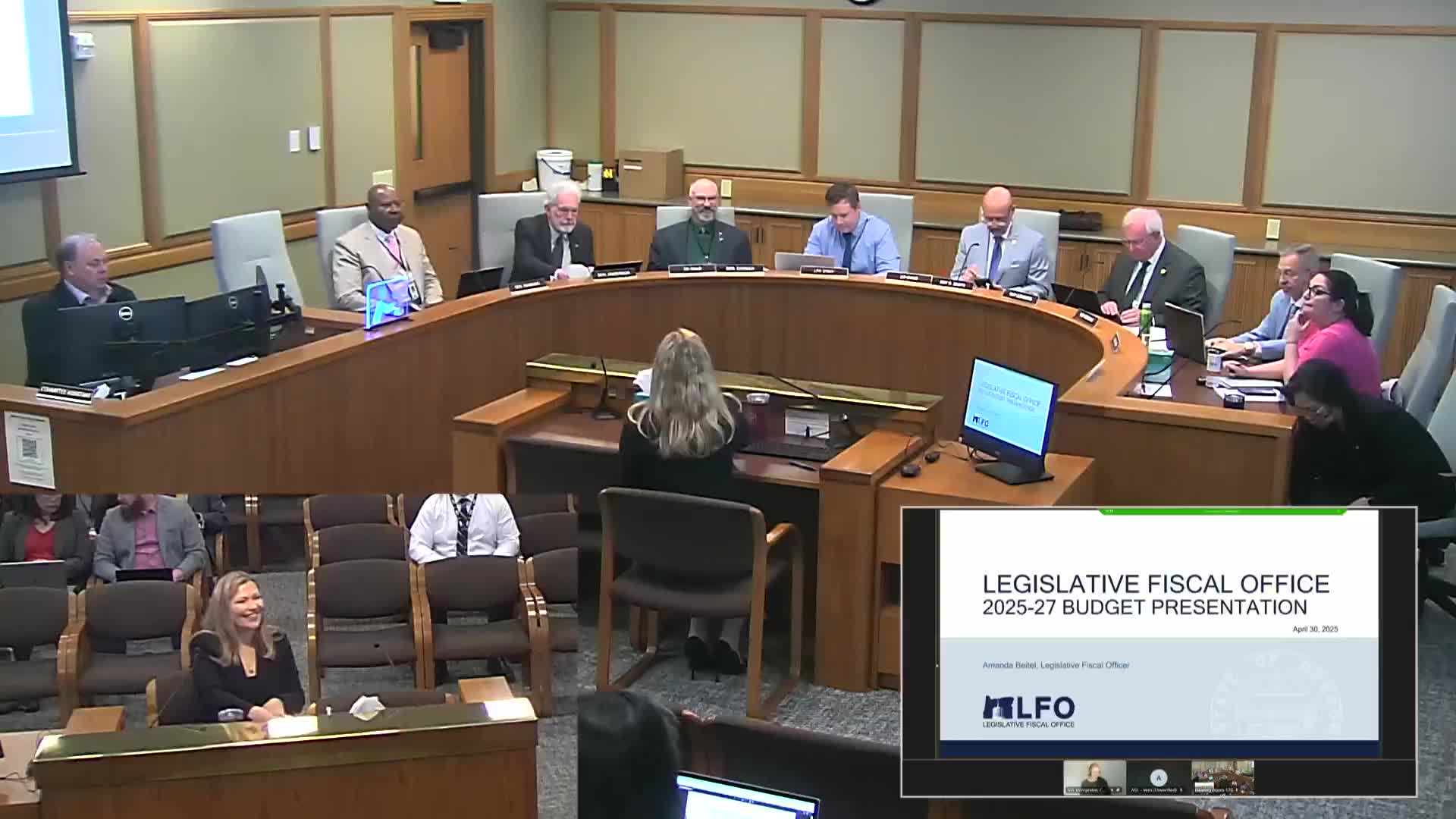Legislative Fiscal Office outlines heavy workload, requests $263,883 for two budget items

Summary
The Legislative Fiscal Office told the General Government subcommittee it is stretched by session-driven peaks in fiscal impact statements and is seeking two policy option packages totaling $263,883 to reclassify an administrative position and add a publications editor.
Amanda Bridal of the Legislative Fiscal Office told the Joint Committee on Ways and Means subcommittee on General Government on April 30 that the office produces fiscal analysis and staff support for the legislature and is facing large, deadline-driven workloads during session. "The legislative fiscal office is a nonpartisan, independent, professional support staff office to the legislature," Bridal said as she summarized the office's mission and staffing.
The office said it has 27 positions and 22 analysts and that its 2025–27 current service level budget totals $16,200,000, including $10,400,000 in General Fund and $5,800,000 in other funds. Bridal said about 86% of LFO expenditures are personal services and that other funds revenues come primarily from a central government service charge transfer of $4,500,000. "We don't execute state agency budgets," Bridal said, noting LFO must often rely on agency answers to quantify implementation details.
Bridal described the fiscal impact statement process and the calendar pressures that produce spikes in work. On average over recent long sessions the office produces roughly 2,700 fiscal impact statements; in 2023 it issued 2,330 and, as of Bridal's presentation, LFO had produced 1,986 fiscal impact statements in the 2025 session. She said roughly 30% (596) of the 2025 statements were issued during the week before the first-chamber deadline. Bridal explained there are three common fiscal-impact classifications: no fiscal impact, minimal fiscal impact, and fiscal impact; she said the office also issues "indeterminate" statements when impacts cannot be quantified.
Members asked about error correction and uncertainty. Representative David Gomberg asked, "what happens when you get an impact estimate wrong?" Bridal said LFO occasionally issues revised or corrected fiscal impact statements when agencies provide updated information or when LFO discovers an error, but it does not retroactively change prior session statements.
To address workload and quality concerns, Bridal said LFO is requesting two policy option packages totaling $263,883. One request would reclassify an administrative specialist position (cost $2,554) to align pay with similar committee assistant positions; the larger request is for a publications editor position ($261,329) to perform quality assurance and increase the capacity to publish and update LFO materials on the public website. Bridal told members that the publications editor would focus on reviewing and improving LFO's publications page, which contains many subpages and long lists of materials.
Bridal also described internal staffing arrangements: two deputy directors (one overseeing budgets, one audits/IT), 22 analysts across three classifications, and roles that shift by session needs. She told the committee that fiscal impact statements are initiated when a policy committee requests them and that limited staff (five dedicated fiscal-impact writers) must prioritize measures that are moving through committee.
Bridal closed by noting LFO's customer-service measure had declined in recent survey responses and encouraged members to complete the office's satisfaction survey when they receive fiscal products. The presentation moved on after committee discussion; no formal vote on the budget requests was taken during the informational session.

